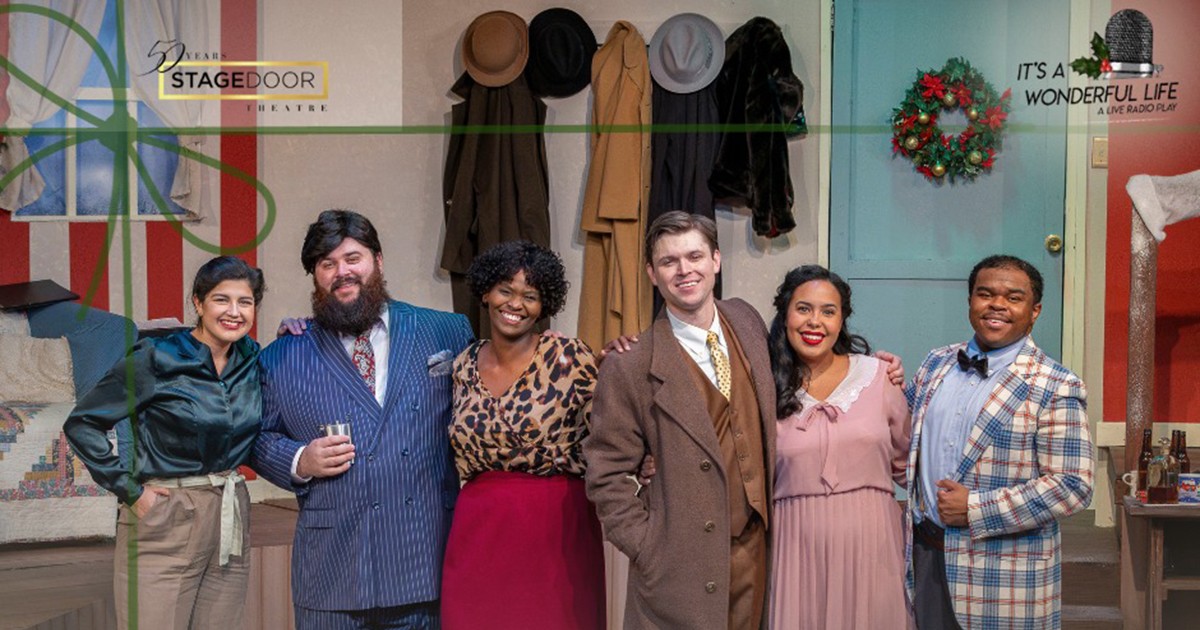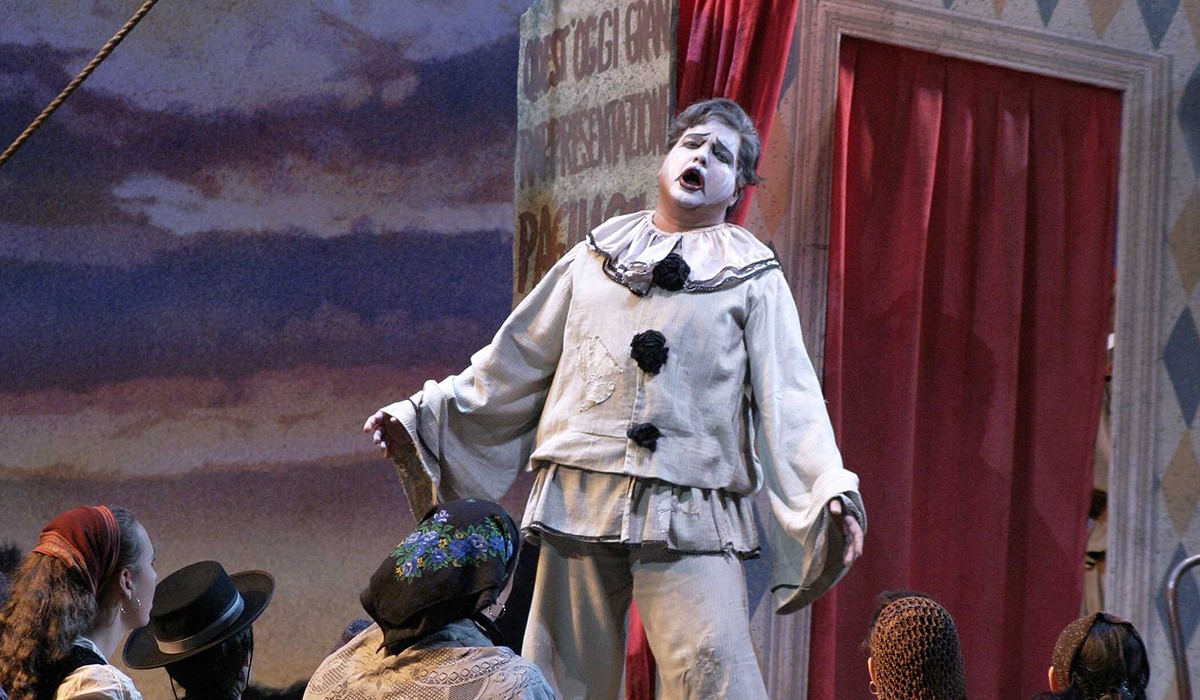Stage Door Atlanta Review of It’s A Wonderful Life – A Live Radio Play

It’s A Wonderful Life – A Live Radio Play
This much-loved film classic, staged as a radio play set in 1946, opened on Friday at the Stage Door in Dunwoody. It is a riveting play that invokes both laughter and tears as well as nostalgia and hope. Set in a radio studio in front of a live audience, the audience is invited by Freddie to laugh, applaud, swoon and cry. The story takes place in Bedford Falls, a small idyllic town in upstate New York. George, who has grown up there, wants something more from life. However, circumstances keep him there. The evil Mr. Potter tries to take over the town. When an accidental loss of $8,000 leaves George on the verge of disaster, he contemplates taking his own life. Enter Clarence, a bumbling guardian angel comes to earth to help. By showing George what would have happened if he hadn’t been born, he turns George around with a new appreciation for his life and the people he loves.
Director Candy McLellan has assembled a multi-talented group of five actors who create vivid and believable characters. Mr. Brock Kercher, as Freddie Filmore and others, shows his versatility using voice and body language. His ability to seamlessly distinguish characters results in a magnetic performance. Mr. Anthony Nash, a newcomer to the Stage Door, portrays George’s guardian angel Clarence and others. He has the talent to deftly transition from one character to another without effort. Garrett McPherson (George), invokes empathy; Brandy Bell (Sally Applewhite as George’s wife) brings charm to the roll; Kymberli Green (Lana Sherwood as George’s mother) shows both her comic and serious sides.
And we can’t overlook the talent of the sound effects (Foley) artist, Amy Duffy. From her small corner of the stage, she is busy providing all the sounds and music that are taken for granted when watching a play or movie. It’s engaging to watch.
Overall, this production is engrossing and can be enjoyed watching it or closing your eyes and listening to the dialog. When you hear the words ‘no man is a failure who has friends’, there won’t be a dry eye in the house. As Ms. McLellan said in the playbill notes, the audience is invited to not only enjoy the familiar tale but to ‘reflect on the deeper messages it imparts’.
Similar Posts

A Third Way Review
Recent Posts

How Do You Want to Look at Art?

The World's Most Famous Art Galleries and Museums You Absolutely Need to Visit

Maker Once Known
